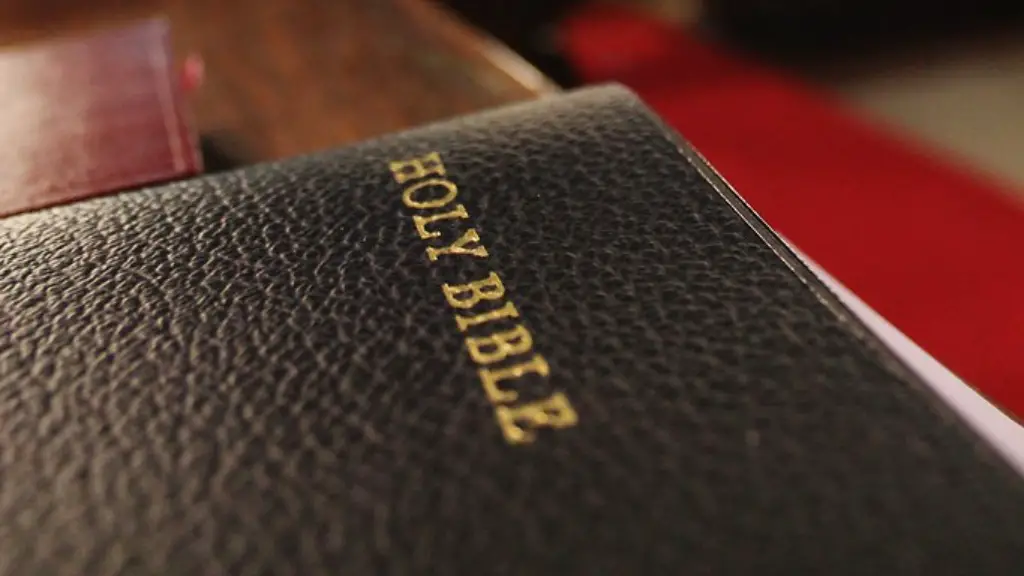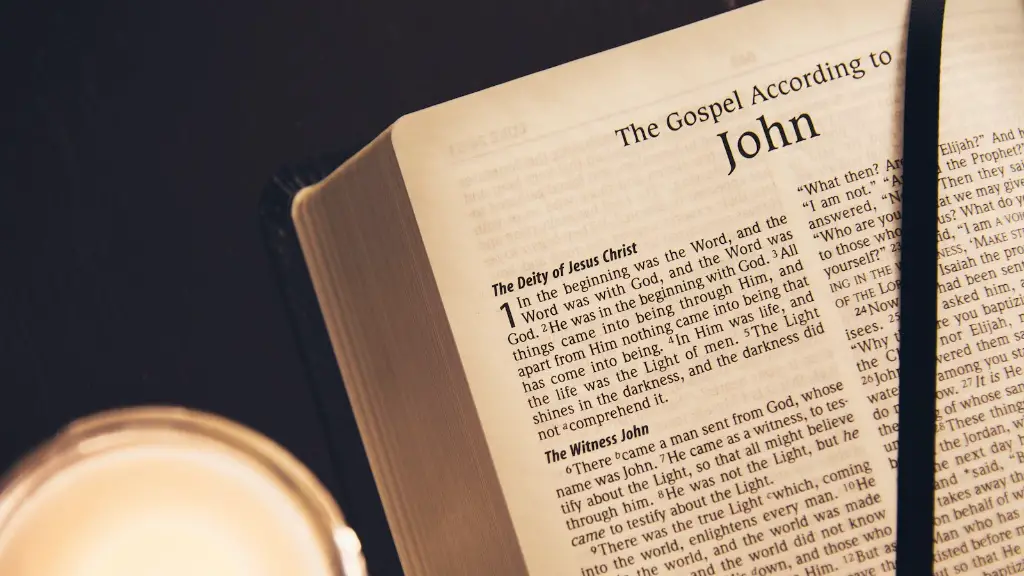Overview
The Bible contains a wealth of teachings on many different topics and this includes fighting. It is important to understand what the Bible says about fighting through careful Bible study in order to live a Bible focused life. In this article, we will explore what the Bible has to say about fighting, its perspectives on violence, creating peace and the power of forgiveness and mercy.
Biblical Basis of Just War
The Bible outlines the concept of ‘just war’ which comprises of principles that help to determine which conflicts should be pursued and which should be avoided. Specifically, in Romans 13:1-7, Paul states that God has appointed authorities to set up laws and maintain order within society, entrusting them with the use of the sword for punishing wrongdoers as a means of preventing evil. This acknowledges that in some situations, fighting is necessary in order to protect the innocent. Thus, just wars are a means of preserving peace, justice, and freedom from oppression.
Forgiveness and Compassion
The Bible teaches that forgiveness, compassion, and nonviolence should be the first response to violence, even in the midst of a war. In Matthew 5:39, Jesus states that those who practice nonviolence in the face of violence will be rewarded. Jesus also teaches that love should be our greatest weapon as shown in John 15:12-13 and Romans 12:14-21. This indicates that the emphasis of Christian teachings is upon forgiveness and peace-making rather than retaliation and retaliation can only be used in extreme circumstances.
A Biblical Perspective on Violence
The Bible contains numerous stories and passages which might condone or even encourage violence, such as the killing of enemies, retribution and war. While these stories may appear to approve of violence, they should not be taken out of context to condone contemporary militarism and should rather be seen as narratives of caution.
In addition, many passages throughout the Bible that are often seen as endorsing violence should not be interpreted as such. For example, when Jesus said ‘he who lives by the sword, dies by the sword’, he was actually speaking about a spiritual truth rather than a physical truth, which is that violence does not lead to eternal life.
The Power of Forgiveness and Mercy
The Bible gives Christians a way to break the cycle of violence through forgiveness and mercy. Jesus embodied the teachings of the Bible when he was nailed to the cross and chose to forgive his executioners instead of retaliating. In 1 Corinthians 13:5, Paul says ‘love…keeps no record of wrongs’. This suggests that revenge has no place in Christian teachings and instead, we should strive to love and forgive those who have wronged us.
The Role of Human Responsibility
The Bible advocates for peace and security of all people but acknowledges the reality of conflict and calls for human responsibility. Christians should strive to follow the way of peace, but need to be aware that as we are living in a broken world and sometimes hard choices must be made in order to protect the peace. 2 Thessalonians 3:16 says ‘if anyone will not work, neither let him eat’ – showing that it is each person’s responsibility to do what they can to strive for peace.
The Role of the Church
The church plays a vital role in promoting peace and unity. In Matthew 18:15-16, Jesus encourages us to confront those who have wronged us in a spirit of humility and gentleness. He also instructs us to forgive those who have sinned against us, so that our sins may be forgiven in turn, showing the power and importance of reconciliation in living a Christian life. In addition, Jesus commands us in Matthew 5:9 to ‘bless those who persecute you’, asserting that those who are wronged should use kindness and compassion as a reaction to violence.
The Outsider’s Role
The Bible also encourages non-involved bystanders to work towards reconciliation and peace. Matthew 5:23-26 asserts that injustice should be resolved before bringing a sin offering to God. In addition, Romans 12:18-21 describes how those who are not directly involved in the conflict have a responsibility to facilitate reconciliation and be peacemakers.
The Role of Prayer
Prayer plays a fundamental role in settling disputes. James 5:13-16 encourages those who are suffering to seek God’s help in prayer. The Bible also asserts that prayer must be combined with action, such as forgiving in order to bring about healing and resolution. Christians should seek God’s help in all aspects of their lives, including during times of conflict, as God is our ultimate provider of peace and comfort.
The Implications of Signing Treaties
The Bible does not directly address the idea of treaty-making. However, many passages throughout the Bible refer to the importance of remaining faithful to promises and creating agreements that bring peace and protect the interests of both parties involved. In Revelation 11:19, God calls his people to make peace and grace through a strong covenant. Therefore, it is in keeping with Biblical teachings to create treaties between nations that ensure a lasting peace.
The Consequences of Breaking Promises
Breaking promises, in particular promises to God, can have major implications. In Exodus 20:7, God warns against taking the Lord’s name in vain and this includes breaking promises made to Him. This implies that making and keeping promises is integral to our relationship with God, and breaking promises can have serious negative consequences.
The Role of Forgiveness
Forgiveness is at the heart of the Christian faith, as we are asked by Jesus in Matthew 6:14-15 to forgive those who do us wrong. By forgiving, we demonstrate love, mercy and grace that are so central to the gospel message. The Bible tells us in Ephesians 4:32 that we should be ‘forgiving one another, even as God in Christ forgave you’, illustrating that the example of forgiveness is set for us through Jesus’s own example of forgiveness.
The Power of Repentance
Finally, the Bible stresses the importance of repentance. Repentance is a journey of self-discovery,of understanding the need for change and the power of reconciliation. In 1 John 1:9, it states ‘If we confess our sins, he is faithful and just to forgive us and cleanse us from all unrighteousness’, illustrating that mercy and grace are available to those who repent. This should be a reminder of the power of reconciliation and the possibility of restoring peace and unity in the face of conflict.



